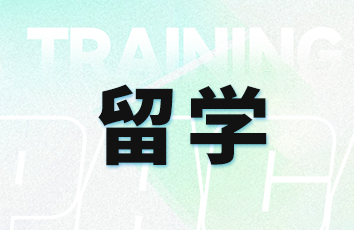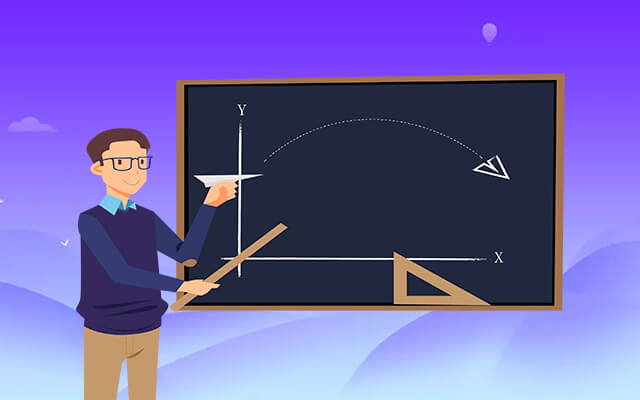剑桥雅思真题19阅读回忆版Test2 Passage 3
剑桥雅思19收集了雅思考试真题共4套题目。羊驼雅思整理了剑雅19考试题Test 2的阅读题Passage3回忆版,供考生们备考时复习参考。

相关阅读:剑桥雅思真题19阅读回忆版Test2 Passage 1
READING PASSAGE3
You should spend about 20 minutes on Questions 27-40. which are based on Reading Passage 3 below.
An inquiry into the existence of the gifted child
Let us start by looking at a modern 'genius’, Maryam Mirzakhani, who died at the carly age of 40. She was the only woman to wyin the Fields Medal-the mathematical equivalent of a Nobel prize. lt would be easy to assume that someone as special as Mirzakhani must have been one ofthose 'giled’children, those who have an extraordinary ability in a specific sphere ofactivily or knowledge. But look closer and a different slory emerges.
Mirzakhani was born in Tehran, lran. She went to a highly selective girls’school bul maths wasn't her interest-reading was, She loved novels and would read anything she could lay her hands on.As for maths, she did rather poorly at it for the frst couple of years in her middle school, but became interested when her elder brother told her about what he'd learned. He shared a famous maths problem from a magazine that fascinated her- and she was hooked.
In adult life it is clear thal she was curious, excited by what she did and also resolule in the face of setbacks. One ofher comments sums it up.'Ofcourse, the most rewarding part is the 'Aha' moment, the excilement of discovery and enjoyment ofunderslanding something new ...But most ofthe lime, doing malhemalics for me is like being on a long hike with no trail and no end in sight. That trail took her lo the heights oforiginal research into mathematics.
Is her background unusual? Apparenlly not.
Most Nobel prize winners were unexceptional in chilclhood, Einstein was slow to talk as a baby. He failed the general part ofthe entry test to Zurich Polytechnie-though they let him in because ofhigh physics and maths scores.He struggled at work initially, but he kept plugging away and eventually rewrole the laws ofNewlonian mechanics with his theory of relativity.
There has been a considerable amount of research on high performance over the last century that suggesis it goes way beyond tesled intelligence. On top of that, research is clear that brains are Пexible, new neural pathways can be created, and lQ isn't fixed. For example, just because you can read slories with hundreds of pages al the age of fve doesn't mean you will still be ahead ofyour contemporaries in your leens.
While the jury is out on gifedness being innate and other factors potentially making the difference, what is certain is that the behaviours associaled with high levels of perlormance are replicable and most can be laught-even traits such as curiosity.
According lo my colleague ProfDeborah Eyre, with whom l've collaborated on the book Grecnt Alincls ancl How to Grow Them the latest ncuroscience and psychological reseaich suggesls most individuals can reach levels ofperlormance associated in school with the gified and lalented. However, they must be taught the right altitudes and approaches to their learning and develop the attributes of high performers- curiosity, persistence and hard work, for example-an approach Eyre calls "high performance learning’. Critically, they need the right support in developing those approaches at home as well as at school.
ProfAnders Ericsson, an eminent education psychologist at Florida State Universily, US. is the co-author of Peak: Secrets from the New Science of Experise. After research going back to 1980 into diverse achievements, from music to memory to sport, he doesn't think unigue and innate talents are at the heart of performance.Deliberate practice, that stretches you every step of the way, and around 10.000 hours of it, is what produces the goods. It's not a magic number- the highest performers move on to doing a whole lot more, of course.
Ericsson's memory research is particularly interesting because random students, trained in memory technigues for the study, went on to outperform others thought to have innately superior memories -those who you might call gined.
But it is perhaps the work ofBenjamin Bloom, another distinguished American educationist working in the 1980s, that gives the most pause for thought, Bloom's team looked at a group of extraordinarily high achieving people in disciplines as varied as ballet, swimming, piano, tennis, maths, sculpture and neurology.
He found a pattern of parents encouraging and supporting their children, ofen in areas they enjoyed themselves. Bloom's outstanding people had worked very hard and consistently at something they had become hooked on when at a young age, and their parents all emerged as having strong work ethics themselves.
Eyre says we know how high performers learn. From that she has developed a high performing leaining approach. She is working on this with a group ofschools, both in Britain and abroad, Some spin-off research, which looked in detail at 24 of the 3.000 children being studied who were succeeding despite diffcult circumstances, found something remarkable. Half were getting free school meals because of poverty, more than half were living with a single parent, and four in five were living in disadvantaged areas. Interviews uncovered slrong evidence ofan adult or adults in the child's life who valued and supported education, either in the immediate or extended family or in the child's wider communily.
Children talked about the need to work hard at school, lo listen in class and keep trying.
Let us end with Einstein, the epitome of a genius, He clearly had curiosity, character and determinalion, He struggled against rejection in early life but was undeterred, Did he think he was a genius or even gifted? He once wrote.
It's not that I'm so smart, it's just that I stay with problems longer. Most people say it is the inlellect which makes a great scientist. They are wrong: it is character."
Test 2
Questions 27-32
Complete the summary using the list ofphrases, A-K, below,
Write the correct letter, A-K, in boxes 27-32 on your answer sheet.
Maryam Mirzakhani
Maryam Mirzakhani is regarded as 27 ..…….... in the field of mathematics because she was the only female holder of the prestigious Fields Medal - a record that she retained at the time of her death. However, maths held little 28…………for her as a child and in fact her performance was below average until she was 29………… by a difficult puzzle that one of her siblings showed her. Later, as a professional mathematician, she had an inquiring mind and proved herself to be 30…………when things did not go smoothly. She said she got the greatest 31 ..………. from making ground-breaking discoveries and in fact she was responsible for some extremely 32…………mathematical studies. |
A appeal B determined C intrigued D single | E achievement F devoted G involved H unique | I innovative J satisfaction K intent |
Test 2
Questions 33-37
Do the following statements agree with the claims of the writer in Reading Passage 3?
In boxes 33-37 on your answer sheet, write
YES if the statement agrees with the claims of the writer
NO if the statement contradicts the claims of the writer
NOT GIVEN if it is impossible to say what the writer thinks about this
33 Many people who ended up winning prestigious intellectual prizes only reached an average standard when young.
34 Einstein's failures as a young man were due to his lack of confidence.
35 lt is difficult to reach agreement on whether some children are actually born gifted.
36 Einstein was upset by the public's view of his life's work.
37 Einstein put his success down to the speed at which he dealt with scientific questions.
Test 2
Questions 38-40
Choose the correct letter, A, B, C or D.
Write the correct letter in boxes 38-40 on your answer sheet.
38 What does Eyre believe is needed for children to equal 'gifted' standards?
A strict discipline from the teaching staff
B assistance from their peers in the classroom
C the development of a spirit of inquiry towards their studies
D the determination to surpass everyone else's achievements
39 What is the result of Ericsson's research?
A Very gifted students do not need to work on improving memory skills.
B Being born with a special gift is not the key factor in becoming expert
C Including time for physical exercise is crucial in raising performance
D 10.000 hours of relevant and demanding work will create a genius.
40 In the penultimate paragraph, it is stated the key to some deprived children's success is
A a regular and nourishing diet at home.
B the loving support of more than one parent.
C a community which has well-funded facilities for learning.
D the quidance of someone who recognises the benefits of learning.
相关推荐
热门话题:





